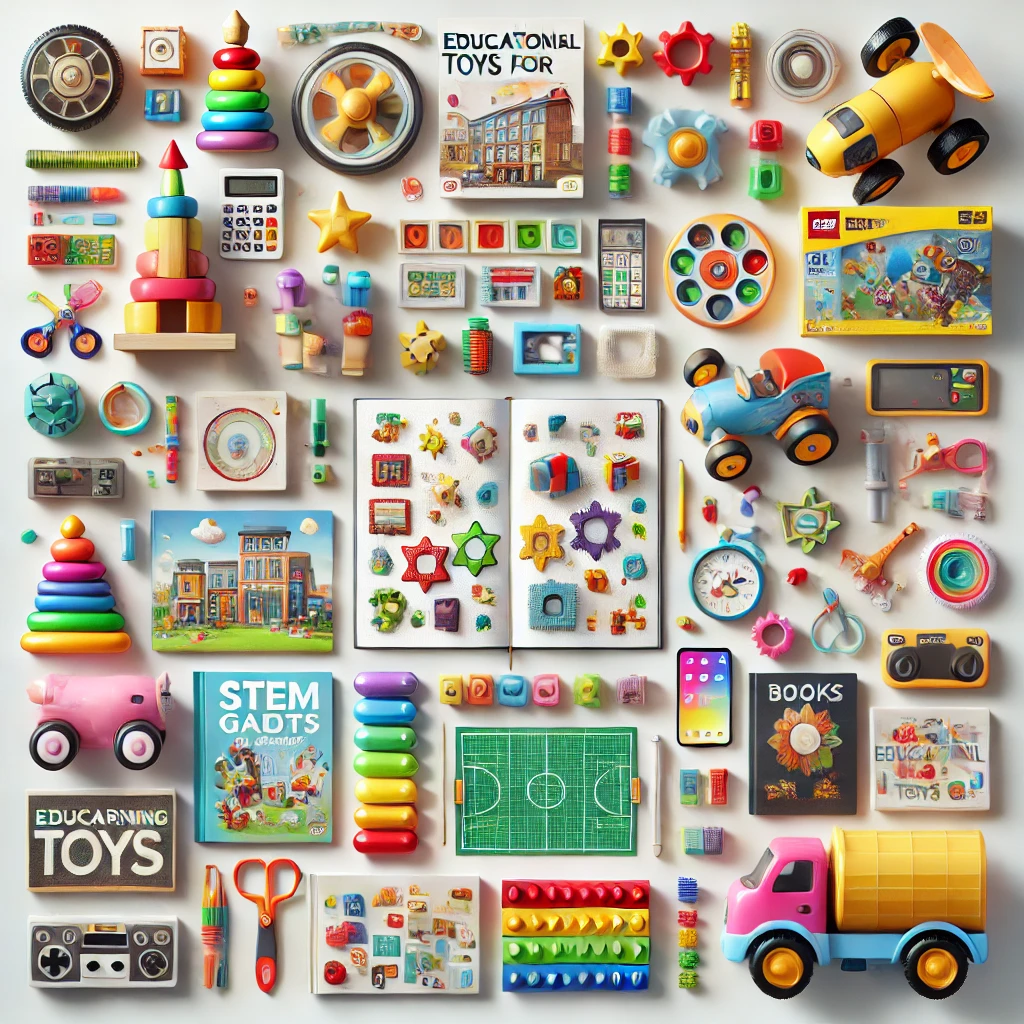
Must-Have Educational Toys for Every Age
Introduction: Why Educational Toys Matter
Let's be real—kids love toys. But what if those toys could do more than just entertain? Enter educational toys, the ultimate parenting hack! These little wonders stimulate curiosity, promote cognitive development, and make learning fun. If you're a parent looking for practical advice on raising confident children, you've landed in the right place.
Infants (0-12 Months): Building the Foundation
1. Soft Sensory Toys
Babies explore the world through touch, sight, and sound. Soft sensory toys with different textures, bright colors, and soothing sounds help with early sensory development.
2. Activity Gyms
An activity gym encourages tummy time, reaching, and grasping. It’s a simple yet effective way to develop motor skills while keeping your little one engaged.
3. Black-and-White Contrast Books
Newborns have underdeveloped eyesight, but high-contrast images help strengthen their visual tracking abilities. A few black-and-white books are a must-have!
Toddlers (1-3 Years): Exploring & Learning
4. Stacking Cups & Blocks
These simple yet powerful toys teach problem-solving, coordination, and basic physics. Plus, knocking them down? Pure toddler joy!
5. Musical Instruments
Mini keyboards, xylophones, or drum sets foster an early love for music while boosting auditory processing skills.
6. Shape Sorters
These little puzzles teach hand-eye coordination, spatial awareness, and problem-solving—fundamental skills for future learning.
Preschoolers (3-5 Years): Creativity in Action
7. Art Supplies
Crayons, markers, playdough—these are essentials for encouraging creativity in children. Let their imagination run wild!
8. Puzzles
Puzzles enhance problem-solving, patience, and fine motor skills. Start with larger pieces and gradually move to more complex designs.
9. Pretend Play Sets
From doctor kits to kitchen sets, pretend play helps develop social and emotional intelligence.
School-Age Kids (6-12 Years): Expanding Knowledge
10. STEM Kits
Science, technology, engineering, and math kits ignite curiosity and teach critical thinking. Robotics kits are a huge hit in 2025!
11. Best Apps for Helping Kids with Homework
While physical toys are great, some of the best educational tools for kids in 2025 come in the form of apps that support math, reading, and problem-solving.
12. Board Games with Strategy
Games like chess or Scrabble teach patience, strategy, and vocabulary. Plus, they’re a great way for families to bond.
Teenagers (13+): Keeping Learning Fun
13. Coding Kits
Teens interested in tech can benefit from coding kits that make programming fun and accessible.
14. DIY Engineering Sets
From building bridges to experimenting with physics, these kits encourage hands-on learning.
15. Books on Effective Communication
Teenagers face challenges in expressing themselves. Books that focus on effective communication with teenagers can help them navigate emotions and relationships.
How to Maintain Work-Life Balance as a Parent
Balancing work, parenting, and self-care isn’t easy. The trick? Prioritize quality time over quantity, set clear boundaries, and use educational toys to make learning a shared experience.
Affordable Ways to Create Fun Learning Activities
Not all educational toys need to break the bank. DIY projects, homemade sensory bins, and free online resources are budget-friendly ways to encourage learning at home.
Conclusion: The Right Toy for Every Stage
Educational toys aren’t just about fun—they’re tools that shape your child’s growth. From infancy to teenage years, selecting the right toys can foster creativity, problem-solving, and essential life skills. So, why not make learning an adventure?
FAQs
1. What are the best educational tools for kids in 2025?
STEM kits, interactive apps, and hands-on learning sets are among the best educational tools for kids in 2025.
2. How to encourage creativity in children?
Provide open-ended toys like art supplies, building blocks, and storytelling games to spark creativity.
3. What are the top tips for managing screen time?
Set clear limits, encourage educational content, and balance screen time with hands-on activities.
4. How can I create a positive learning environment at home?
Make learning fun, set up a dedicated study area, and use educational toys to reinforce concepts.
5. What are the top parenting challenges and how to overcome them?
Challenges like screen time, discipline, and communication can be managed through structure, consistency, and open conversations.